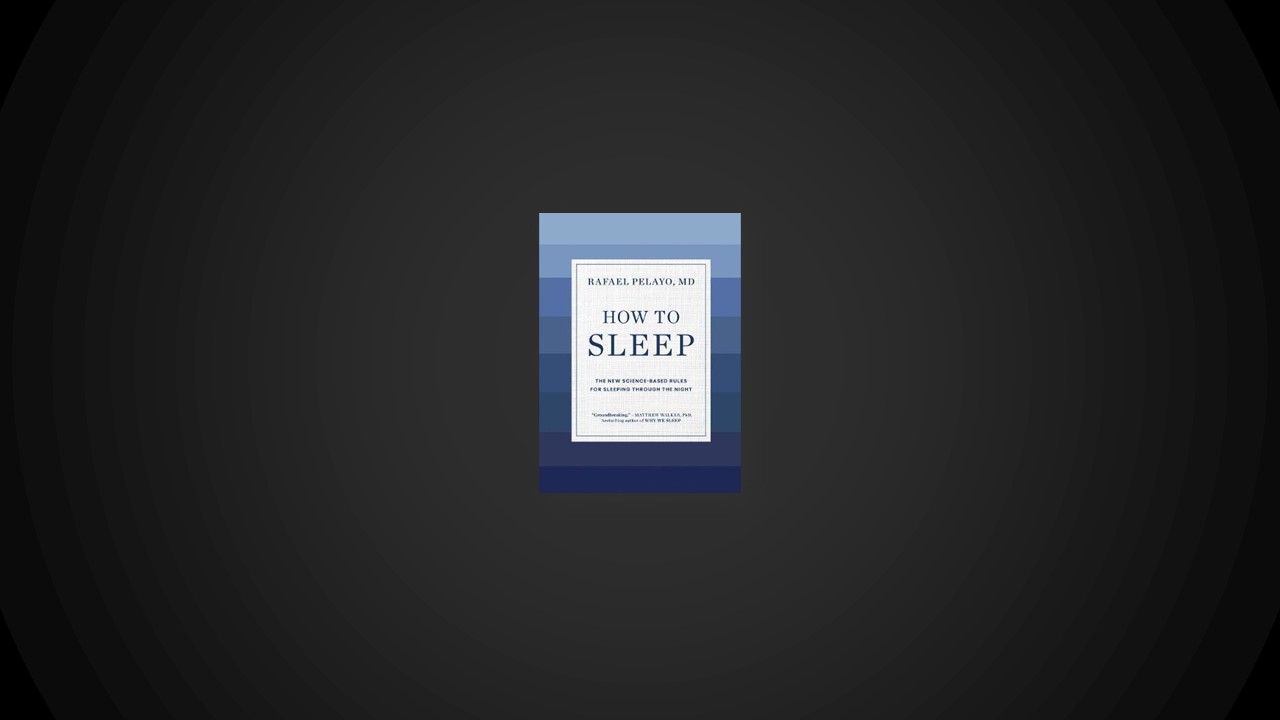You Might Not Need Eight Hours of Sleep
An average of seven to eight hours of sleep allows most people to wake up feeling their best, but the optimal number of hours one should sleep depends on the individual and the assumptions that your sleep is normal in quality and its timing is predictable. Ultimately, there’s no magic number of hours you need to sleep each night. Put simply, you need as many hours of sleep as it takes for you to wake up feeling refreshed and remain alert throughout the day. “Short sleepers” seem to have a genetic predisposition to sleep fewer hours than average, while “long sleepers” tend to need more sleep. But if your need for sleep noticeably changes, consult a doctor.
Can I Get Too Much Sleep?
There’s no evidence that “too much sleep” is a legitimate phenomenon. Still, anyone who sleeps for an unusually long period of time—whether a student sleeping off an all-nighter or a shift worker coming off a twenty-four-hour workday—can wake up feeling groggy, achy, and listless, the opposite of refreshed and alert.
The explanation for this is threefold: First, the ability to sleep twelve hours or more indicates a very large sleep debt, which simply can’t be eliminated in one extended sleep period—it may take a week or so to get back to normal. Second, when you sleep until midday or into the afternoon, you’re waking up close to the classic midday drowsy slump, and the timing of your body’s hormones will be out of sync with their usual rhythm. Third, a long period of immobility can result in muscle aches or stiffness.
Alas, while you can accumulate sleep debt, you cannot store up sleep. A normal, predictable sleep pattern should be the goal each and every night.
Sleep Is Delicious
Few things in life are more satisfying than waking up refreshed after a full night of sleep. It really is . . . delicious! Sleep is an appetitive behavior, meaning we have a natural desire to satisfy our need for sleep. And the area of the brain that regulates hunger and eating, the hypothalamus, is also very much involved in the basic regulation of our sleep. In experiments, when an animal is sleep deprived, it will eat more. When humans don’t get enough sleep, they tend not only to seek out food but also to make more impulsive food choices. You may find that a brief nap is more satisfying than any big lunch!
You Will Always Sleep
Human sleep is homeostatic, meaning that it is a system that seeks balance. The more time you spend awake, the more you need to sleep. As long as you are alive, you cannot indefinitely stop yourself from sleeping—that would be like voluntarily trying to hold your breath. Eventually your biology will force you to breathe again. And so it goes with sleep. It’s a natural process, one people with insomnia should take to heart: As a homeostatic function of the brain, sleep will eventually return.
It’s Never Normal to Snore
We all know the sounds of snoring, from the repetitive, sawlike “cutting z’s” to the occasional sudden snort. Snoring during sleep is common, but it is also a red flag that something is wrong. People don’t snore when they’re awake, after all. Why, from an evolutionary standpoint, would we tip off our presence to predators when our guard is down? Snoring would be a dinner bell!
It’s common to snore in transient situations—such as when recovering from a cold, for example—but otherwise sleeping should be silent. The sounds of snoring indicate that some kind of abnormal airflow obstruction or turbulence is causing you to have difficulty breathing, forcing you to mouth breathe in your sleep. It’s a simple concept: If you don’t get enough air in through your nose, your mouth will drop open. This often happens when we exercise. It should not happen when you sleep.
Snoring can be measured or tracked in different ways, but the easiest may be simply by asking a bed partner, who sees and hears (practically) all. But what if you sleep alone? How do you know if you snore? If you find yourself waking frequently in the night with a dry mouth or needing to drink water, it may indicate that you are mouth breathing in your sleep. If you occasionally share sleeping space with a friend or family member (while traveling, for example), give that person permission to let you know if you snore. Or simply record yourself as you sleep during the night.
If you do snore, don’t ignore it. Tell your health-care provider. If your health-care provider tells you not to worry about it because they snore, too, get a new doctor! And if you hear someone snoring, let them know. You might be saving their life.
The first step in correcting snoring is determining if you suffer from simple snoring
or the more serious obstructive sleep apnea.
Sleep for the Insomniac
Worrying about sleep can be a trap. If you go to bed thinking that tomorrow’s success depends on how well you sleep tonight, you are setting yourself up for a troubled night of sleep. Worry sends a warning signal to the brain, which responds by staying alert and sleeping as little as possible. Your brain is just doing what it is supposed to do: Sleeping is one of our most potentially dangerous activities—it’s when we are at our most vulnerable. Your brain interprets danger and stress as the same thing and sleeping lightly or not at all is its biological response to an alert that something is wrong.
At the same time, sleep is a homeostatic function of the brain. Homeostasis is the mechanism that a biological system uses to achieve balance. This means that our brain strives to restore itself during sleep. It is a simple yet powerful concept. Don’t be hard on yourself if you wake up during the night; remember, waking frequently is a normal function of a sleep cycle
Trying to stop this process only sets in motion an endless vicious cycle of waking fitfully and sleeping in spurts. Comfort yourself by knowing that sleep will return. The brain’s homeostatic drive guarantees it.
asleep and are able to provide loads of details about their bedtime, the time it took them to drift off, how often they woke up, and how long they were awake during the night. But when asked about their wake-up time, the answer becomes vague—“it depends,” they say, “on when I fell asleep.” One of the first steps in fixing a behavioral component of a sleep problem is to lock in a wake-up time. Patients with insomnia often say they will do “anything” to sleep better, but when I ask them to get out of the bed at the same time every day their first response is “I can’t do that.” But the fact is, it is much easier to force yourself to wake up at a specific time than to fall asleep. If you wake up and get out of bed at the same time every day, eventually your robust biological clock will also help make the time at which you fall asleep more predictable.
Why Is It Hard to Remember Our Dreams?
If the fantastical events of our dreams occurred in real life, they would be hard to forget. Yet dreams are consistently difficult to recall. In order to remember a dream, you have to think about it while you’re awake, often just as you’re waking up (which is why some people put a pad and pencil next to their bed, so they can record their dreams before they forget them).
When you wake up people in the midst of REM sleep, however, there is about an 80 percent chance they will report a dream. This is because REM sleep is the time when you are most likely to be experiencing a dream (you can have fragments of sleep imagery during other stages of sleep, but not in the rich detail that REM dreams deliver). Even people who say they never dream will often report dreaming if they are awoken during this time.
In fact, dreams may be meant to be forgotten. REM sleep takes up about one to two hours of our nightly total sleep time. Imagine if every morning you had two hours’ worth of vivid dreams to recount—you’d never get anything done! That dreams are hard to remember may be a clue to their potential function in the consolidation of memory (see opposite) as well as in understanding conditions such as dementia.
Dreams Enhance Our Creativity
Creativity is not only important to the arts; it also gives us tools to adapt to new environments and is a key component of problem-solving. Neuroscience is just now starting to understand the biological mechanisms by which the brain can have creative thoughts, and many of those mechanisms are at their best while we’re asleep and dreaming.
When we are awake, we cannot ignore the world around us for very long. Our senses are constantly receiving new information that we must process and respond to quickly in the moment. When we are asleep, however, we disengage from the stimuli of the outside world. In the safety of our sleep, especially when we dream, our brains take the information we have been mulling over while we’re awake and scan for connections to this material in other parts of our brain, which often results in new and potentially surreal combinations of thoughts. From this brew of neural activity during REM sleep, new ideas rise into our consciousness. If we manage to remember these thoughts, they can give us insights into the things we ruminate over when we are awake.
Final Thoughts
Modern sleep science has come a long way in a very short time. The true promise of sleep is that we all live healthier, longer, and more enjoyable lives when we sleep well. It is the ultimate form of self-care, and it begins with making quality sleep a priority. Societal pressures to rob us of sleep may feel relentless, but as sleep science advances and we all learn to value our sleep health, the future looks promising indeed. The new reality is that we no longer need to wake up feeling tired—our very health depends on it. I hope this book has helped you understand that you and your loved ones can all sleep better.


